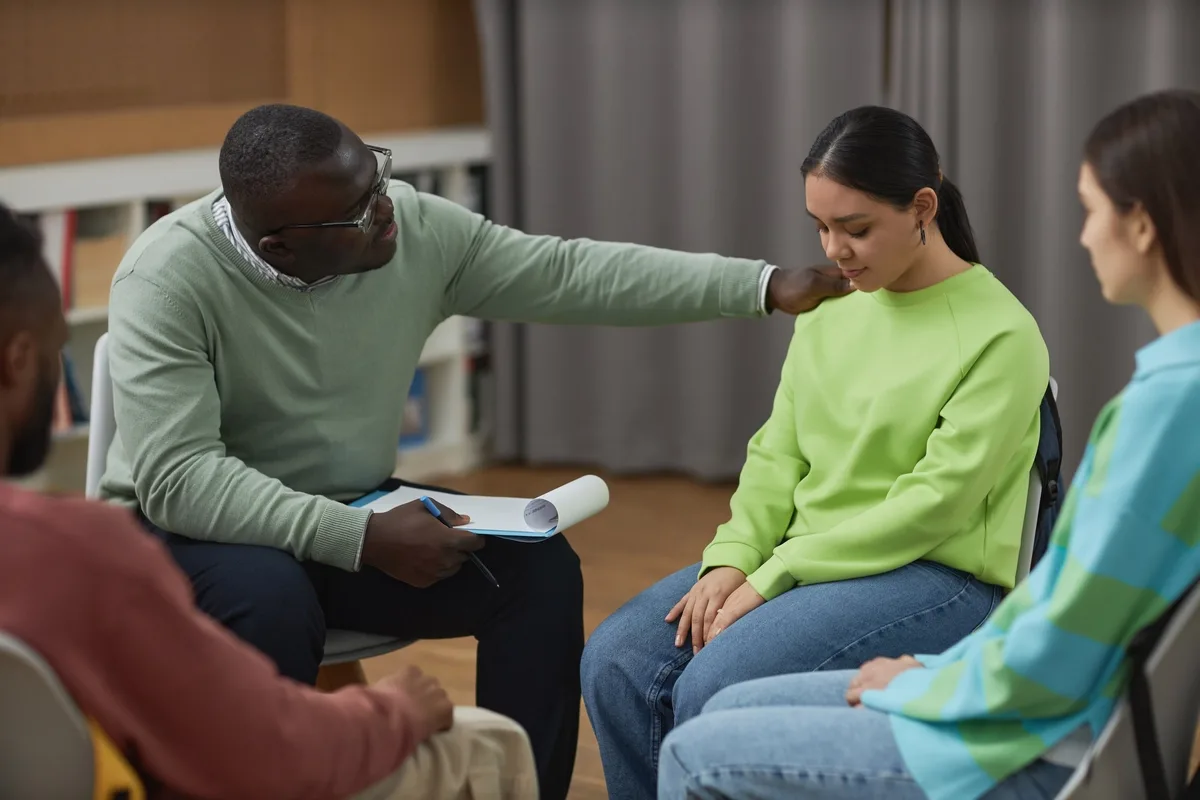24/7 Helpline:
(866) 899-221924/7 Helpline:
(866) 899-2219
Learn more about PTSD Treatment centers in Fort Mc Coy
PTSD Treatment in Other Cities

Other Insurance Options

Health Choice

Sutter

BlueCross

Group Health Incorporated

Magellan

GEHA

UMR

Covered California

AllWell

State Farm

ComPsych

Amerigroup

Aetna

American Behavioral

Ambetter

BHS | Behavioral Health Systems

Choice Care Network

Kaiser Permanente

CareFirst

Medical Mutual of Ohio




































